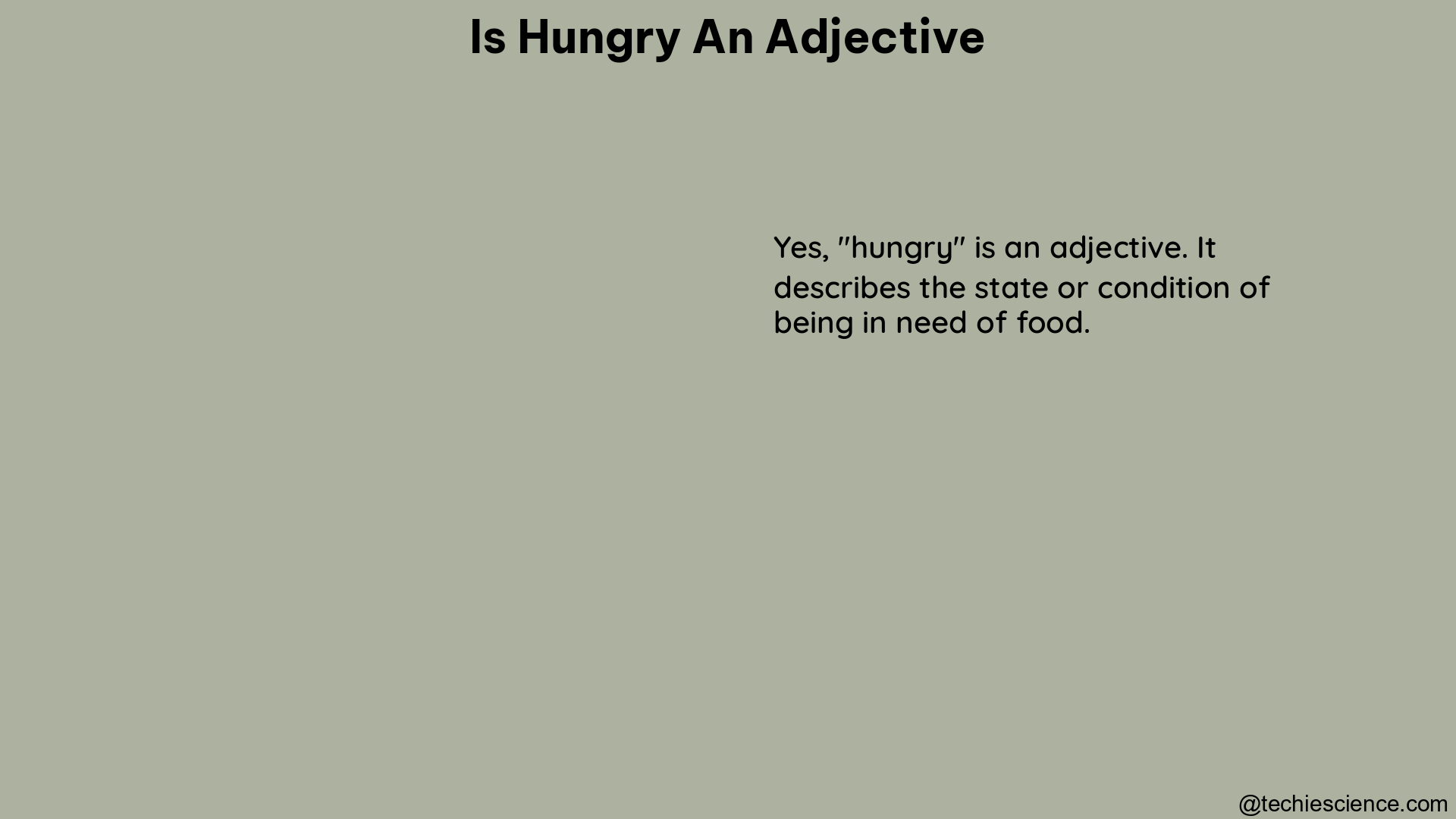Yes, “hungry” is an adjective that can be used to describe various states of hunger or desire. This comprehensive guide delves into the grammatical specifications, usage, and advanced details surrounding the adjective “hungry.”
Definitions and Usage
Feeling Hunger
The adjective “hungry” can be used to describe the physical sensation of needing food. It conveys a state of being in need of sustenance.
Examples:
– “I’m really hungry.” (Oxford Learners Dictionaries)
– “That girl is always hungry.” (Merriam-Webster)
Lack of Food
“Hungry” can also be used to describe people who do not have enough food to eat, indicating a lack of access to adequate nourishment.
Examples:
– “Thousands are going hungry because of the failure of this year’s harvest.” (Oxford Learners Dictionaries)
– “There are millions of hungry people throughout the world.” (Merriam-Webster)
Strong Desire
The adjective “hungry” can be extended to describe a strong desire or craving for something other than food, such as power, information, or attention.
Examples:
– “Both parties are hungry for power.” (Oxford Learners Dictionaries)
– “The prisoners’ families were hungry for more information.” (Merriam-Webster)
Characteristics
“Hungry” can be used to describe something that causes hunger or has a hungry appearance, such as a task or a person’s expression.
Examples:
– “All this gardening is hungry work.” (Oxford Learners Dictionaries)
– “His eyes had a wild hungry look in them.” (Oxford Learners Dictionaries)
Advanced Details and Theoretical Explanation

Adverb Form
The adverb form of “hungry” is “hungrily,” which is used to describe actions performed with a sense of hunger or strong desire.
Examples:
– “They gazed hungrily at the display of food.” (Oxford Learners Dictionaries)
– “The dog stared hungrily at the food on the table.” (Britannica Dictionary)
Noun Form
The noun form of “hungry” is “the hungry,” which refers to people who do not have enough food to eat.
Example:
– “The hungry noun [plural] people who do not have enough food to eat.” (Oxford Learners Dictionaries)
Etymology
The word “hungry” originates from Old English “hungrig,” which is of West Germanic origin and related to Dutch “hongerig” and German “hungrig.” (Oxford Learners Dictionaries)
Examples
- “I’m really hungry.” (Oxford Learners Dictionaries)
- “That girl is always hungry.” (Merriam-Webster)
- “Thousands are going hungry because of the failure of this year’s harvest.” (Oxford Learners Dictionaries)
- “Both parties are hungry for power.” (Oxford Learners Dictionaries)
- “The prisoners’ families were hungry for more information.” (Merriam-Webster)
Reference Links
- https://www.oxfordlearnersdictionaries.com/us/definition/american_english/hungry
- https://www.merriam-webster.com/dictionary/hungry
- https://www.dictionary.com/browse/hungry
- https://www.britannica.com/dictionary/hungry
- https://www.oxfordlearnersdictionaries.com/us/definition/english/hungry
Hey! I am Arpita Bose Roy. My qualifications are M.A. in English with B. Ed. in both general education and special education. I have 2 years of experience as a “language analyst” at IIT Kharagpur and 4 years of experience as an “Academic Content Developer” at IIT Kharagpur. Currently, I am working as an academic writer at Lambdageeks.